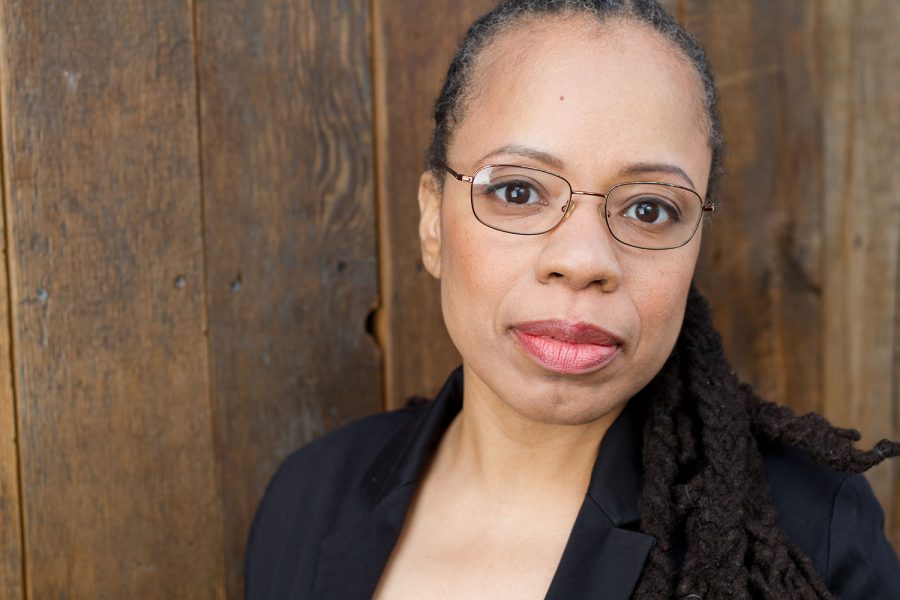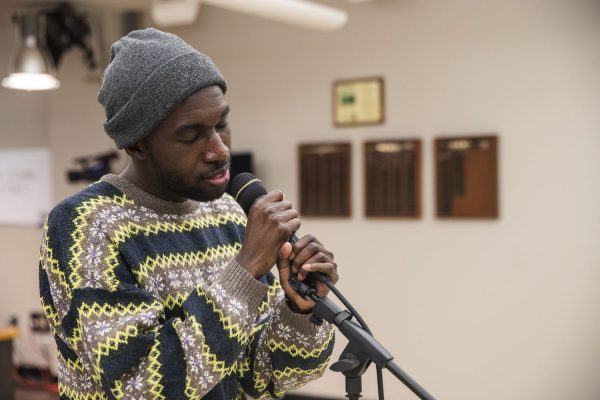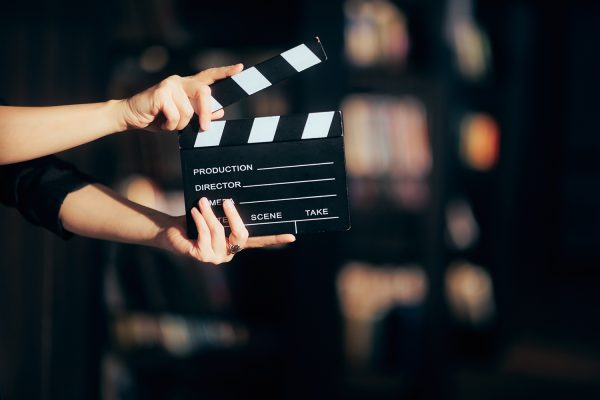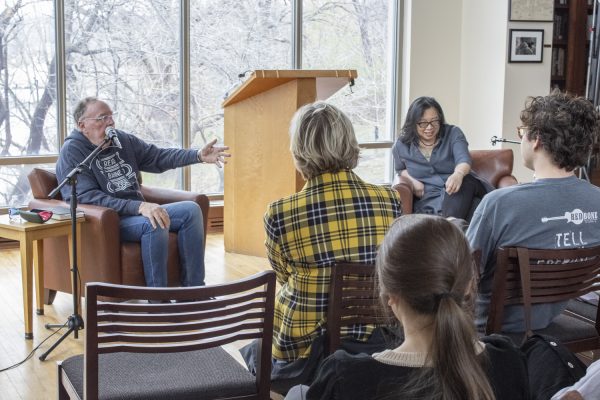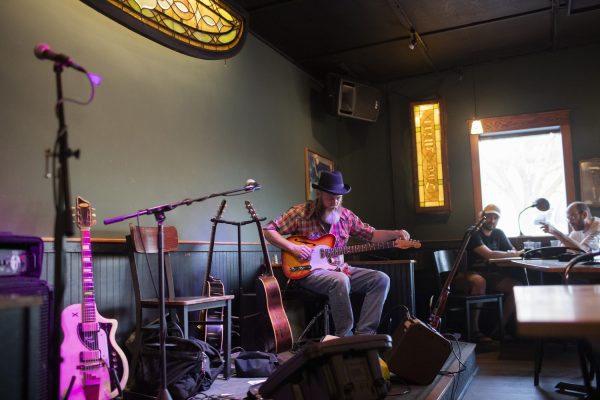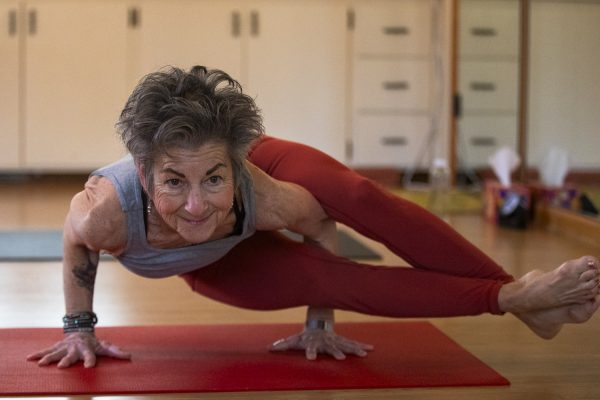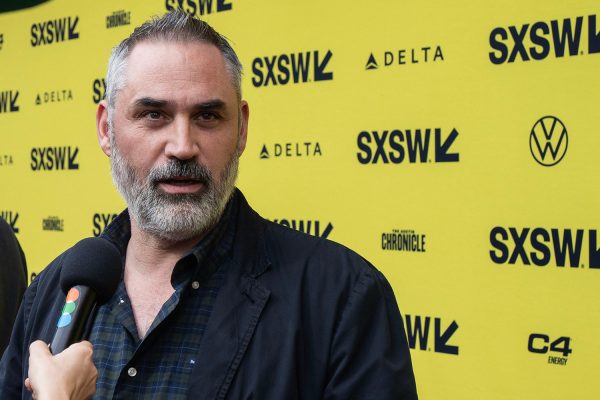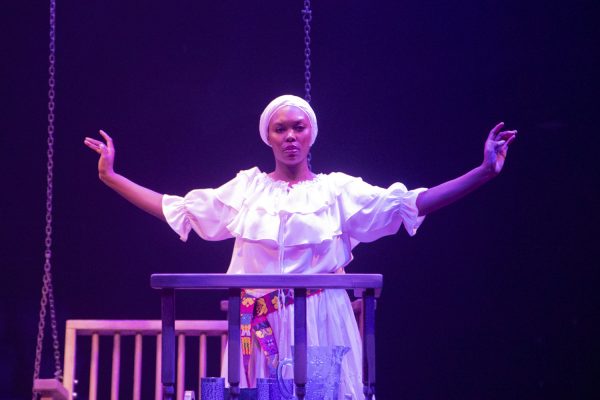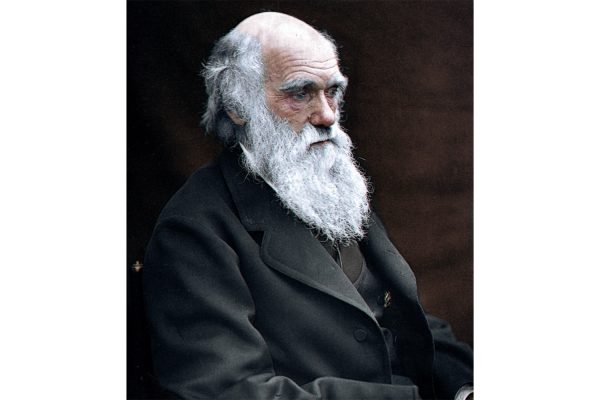UI professor’s short film presented in final ‘Black Lives on Screen’ event
UI professor of poetry Tracie Morris presented her short film ‘Black Spring’ Thursday night at the final event in the UI Cinematic Arts Department’s ‘Black Lives on Screen’ series.
Contributed photo of Tracie Morris
May 7, 2021
Health concerns during the COVID-19 pandemic prevented University of Iowa Poetry Professor Tracie Morris from going to Black Lives Matter protests this summer. When she was commissioned by the UI Cinematic Arts Department last semester, she said she saw a great opportunity to support those causes through film.
The department debuted Morris’ short film, Black Spring, last night, which served as a poetic conversation in film and the final installment of their ‘Black Lives on Screen’ series.
The event, which consisted of a showing of the short film and then a conversation between Morris and Stanley Museum of Art Chief Curator Joyce Tsai, was co-hosted by the UI Obermann Center for Advanced Studies. Director of the Obermann Center for the Advanced Studies Teresa Mangum and Associate Professor in the Cinematic Arts Department Paula Amad moderated the event.
Morris is a professor at the Iowa Writers Workshop and in 2020 became the first African American tenured professor of poetry in the history of the workshop. Before she became a tenured professor, she was the inaugural Distinguished Visiting Professor of Poetry at the Iowa Writers Workshop for three semesters. She was also selected for the 2021 Guggenheim Fellowship.
RELATED: UI poetry professor to create book about African American trailblazer using Guggenheim grant
Before poetry became her passion, Morris considered getting involved with film at a technical level. She said she has always been interested in film and acting. Previously, she has done three live performances accompanying films in partnership with FilmScene. The short film allowed her to create her own material, which Morris said she had originally envisioned to be a longer piece. She explained that her instincts as a poet eventually led her in a different direction.
“Being a poet, one of the attributes of poetry is to be economical. You use what you’re supposed to use, and you don’t just fill space,” Morris said in an interview with The Daily Iowan before the event. “So, as I was working on it, I just felt like making it a shorter multi-layered piece would be better than trying to extend it for a longer period and I feel much more comfortable with what we’ve been working on.”
The event started with Mangum and Amad introducing Morris and Tsai before the viewing of Morris’s short film.
The film ran approximately 13 minutes and included documentary footage, archival footage, stills, photographs, and other visual elements to create a montage. Some of the audio came from video clips in the film, usually news reports or speeches. A majority of the images on the screen were underscored with poems read in various languages, throat singing, manipulated songs, drone sounds, and other auditory elements.
Immediately following the premiere of the short film, there was a discussion between Tsai and Morris that began with an acknowledgment of all of the people that worked to make the presentation possible. Both Tsai and Morris stressed the importance of collaboration.
RELATED: University of Iowa student Trevon Coleman paves way for filmmakers of color
“We need each other to make this happen. We need the community to make great art happen. It doesn’t happen with the individual,” Morris said during the event.
Sound is an integral part of the performance, Morris and Tsai spoke a lot about the many different kinds of audio presented in the film and the different languages and forms they come in. Morris stressed that she tries to take the literal meaning from sounds.
Extensive discussion revolved around the visual elements and how they appear recognizable but also out of reach. Morris noted that she wanted to emphasize the nonsensical elements of some of the images. She said that she felt impressed with her community’s resilience and the ability of Black Americans to continue to thrive in the face of adversity.
Morris spoke about how the title, Black Spring, comes partially from a video at the end of the film of a Black woman playing with her hair and images of a black coil. The coils are pulled apart, but then they bounce back.
The film contains a constant reference to a “close call,” with images and videos of people who survive terrible encounters. Morris said that the issue is more than the loss of life, it is also about the psychological torture and about how Black Americans continue to rise despite those challenges. She said that she wants to imagine what could happen if the limitations Black Americans face didn’t exist.
“I wanted to give people a hope and a sense of purpose so that they can continue to fight the good fight,” Morris said before the event. “Not just fight but also have hope and a great deal of pride and a sense of self as we continue to advocate for human rights and freedom for all and democracy for all.”



